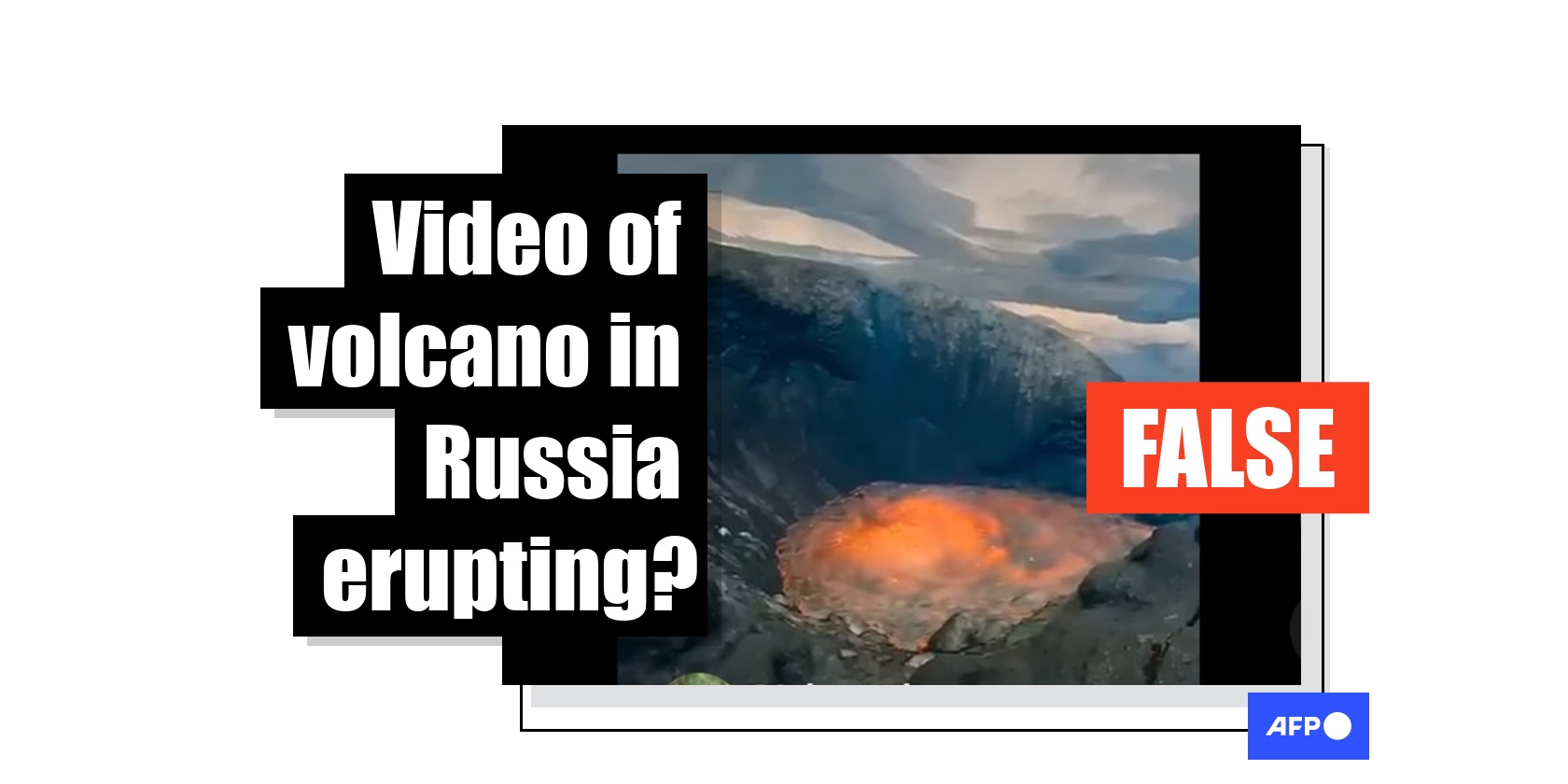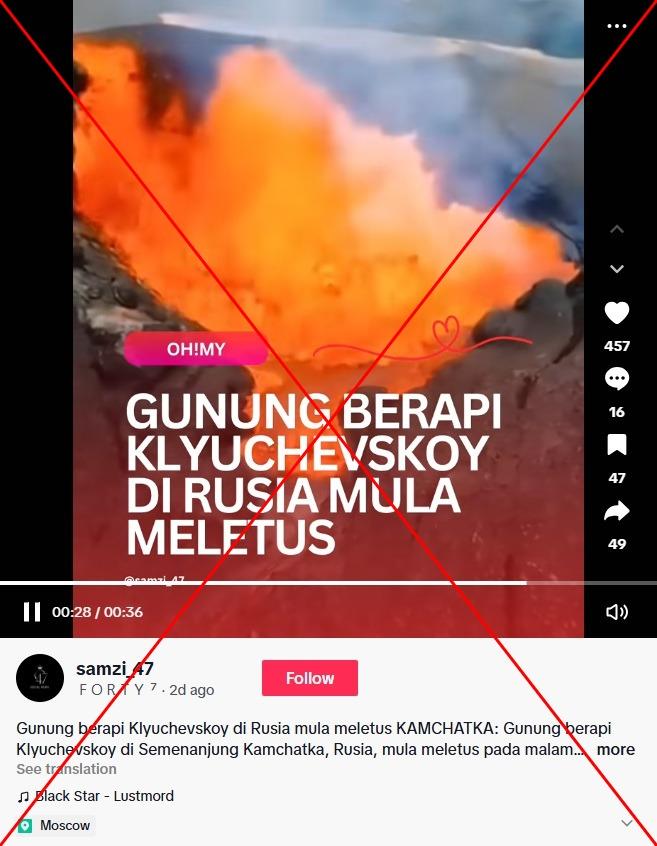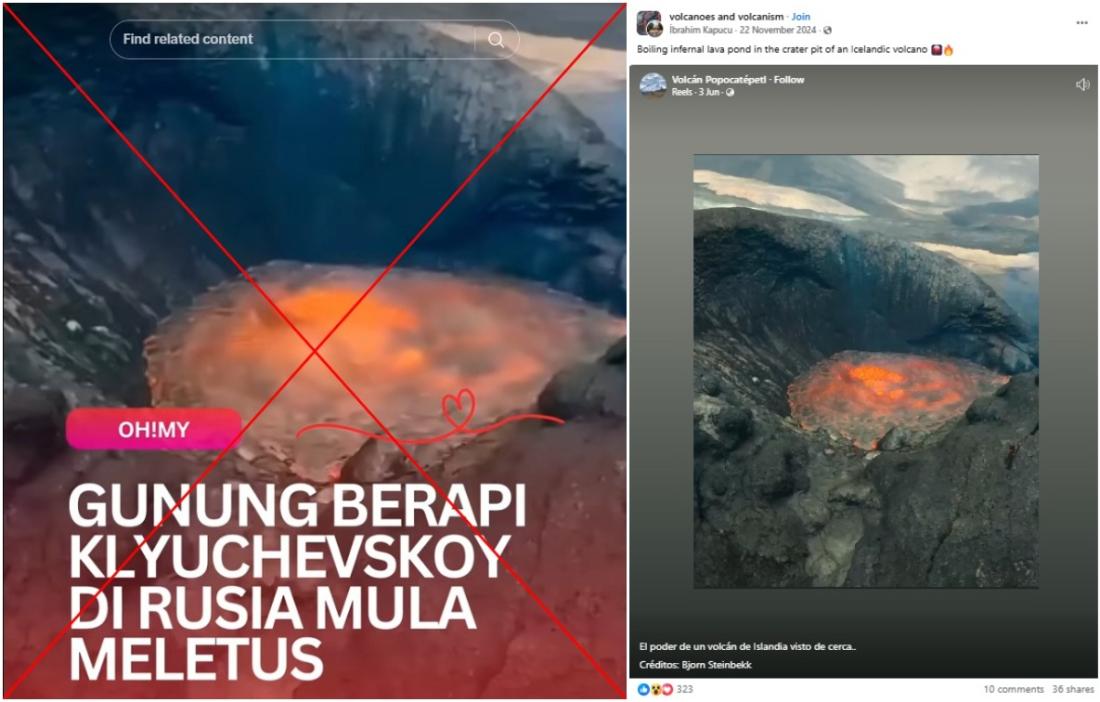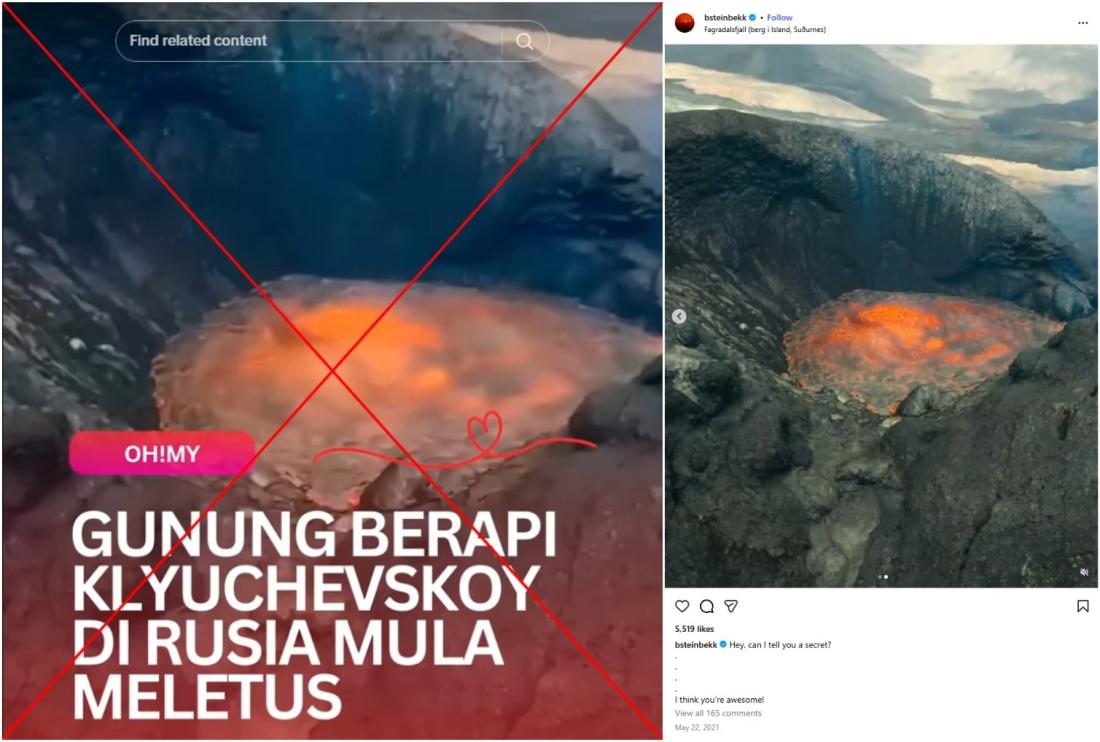
Clip shows 2021 eruption of Fagradalsfjall in Iceland, not Russian volcano
- Published on August 4, 2025 at 04:45
- 2 min read
- By Raevathi SUPRAMANIAM, AFP Malaysia
"The Klyuchevskoy volcano in Russia is starting to erupt," reads a Malay-language TikTok post shared on July 31, 2025.
The accompanying video of lava bubbling up and overflowing from a crater has been viewed more than 33,000 times.

The same video was shared alongside a similar claim on TikTok and Facebook after Russia's Geophysical Survey said the Klyuchevskoy volcano -- the highest active in Europe and Asia -- erupted on July 30, with lava seen flowing down its slopes (archived link).
Earlier that day, an 8.8-magnitude earthquake struck Russia's far eastern Kamchatka region, triggering tsunami alerts across parts of the Pacific coast (archived link).
The circulating video, however, shows an eruption at a different volcano four years earlier.
A reverse image search on Google using keyframes from the falsely shared clip led to similar footage posted on Facebook in November 2024, where it was captioned, "Boiling infernal lava pond in the crater pit of an Icelandic volcano" (archived link).
The post embeds an earlier post from June 2021, and credits the video to a Bjorn Steinbekk.

A subsequent keyword search for "Bjorn Steinbekk" on Google led to the Instagram account of an Icelandic photographer with the same name who specialises in taking drone videos and images of volcanoes (archived link).
The same video was also shared on the Instagram account on May 22, 2021 (archived link).

Steinbekk told AFP he filmed the video used in the false posts at the Fagradalsfjall volcano near Iceland's capital Reykjavik, in 2021 (archived link).
"This is indeed my video. This is not the first or tenth time this happens," Steinbekk said in a July 31 email.
The Fagradalsfjall volcano erupted in March 2021 after lying dormant for 800 years, NASA's Earth Observatory said at the time (archived link).
AFP reported that the volcanic eruption, which drew hundreds of thousands of tourists and was the longest in 50 years, was officially declared over by authorities on December 20, 2021 (archived link).
AFP has also debunked other misinformation that has swirled online since the 8.8-magnitude earthquake in Russia's Far East.
Copyright © AFP 2017-2026. Any commercial use of this content requires a subscription. Click here to find out more.
Is there content that you would like AFP to fact-check? Get in touch.
Contact us
